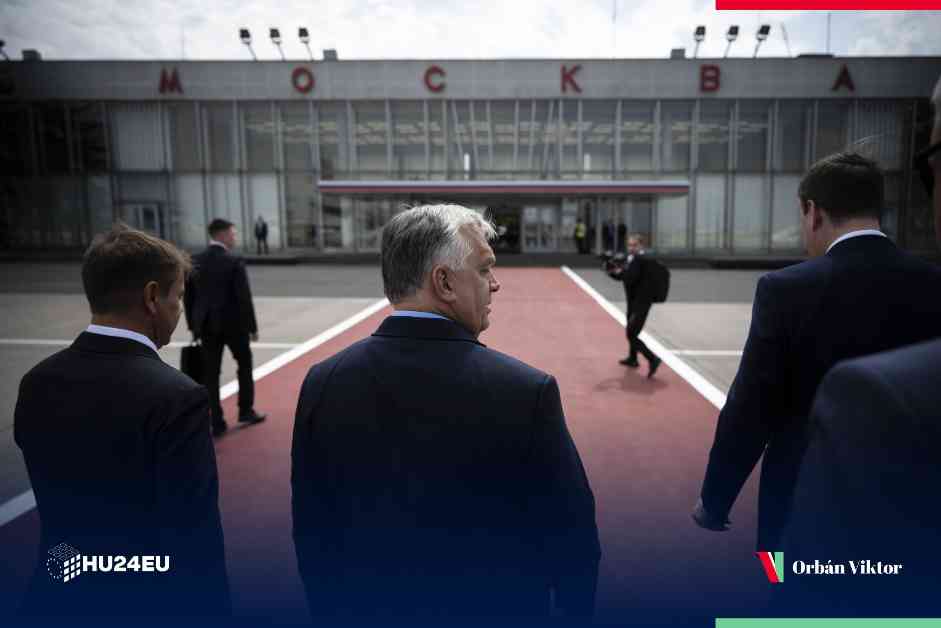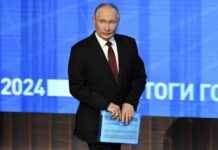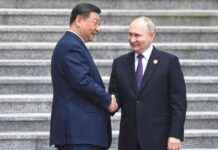Thousands of people gathered in Budapest on 15 March to protest against Hungarian Prime Minister Viktor Orbán, organized by the opposition party Tisza. The rally was a response to Orbán’s controversial stance on EU-Ukraine relations and his alignment with Russian narratives, causing tensions with Ukraine. Orbán has used Hungary’s veto power to block key EU decisions on Ukraine, including sanctions against Russia, and has been vocal in opposing military aid and EU and NATO accession talks for Ukraine.
During the protest, Tisza leader Péter Magyar announced a public referendum called Voice of the Nation, scheduled to run from 24 March to 11 April. The referendum will feature 12 questions, mirroring Orbán’s own 12 demands to Brussels. These questions cover critical issues such as Hungary’s EU and NATO membership, term limits for the prime minister, and other contentious topics raised by Orbán.
Orbán, on the same day, presented his demands to the EU, coinciding with Hungary’s commemoration of the 1848–1849 national revolution against the Austrian Empire. His demands included calls for legal equality among all member states, a stronger veto power for national governments, restrictions on “unnatural child-rearing,” and the removal of what he calls “Soros agents” from the European Commission.
In a fiery speech during the rally, Orbán pledged to crack down on media outlets and non-governmental organizations receiving foreign funding, labeling them as a “shadow army” controlled by external forces. He vowed to eliminate these organizations, likening them to insects that needed to be eradicated. Orbán also praised US President Donald Trump’s plan to close the US Agency for International Development (USAID), which had been supporting democracy and civil society programs in Central Europe, including Hungary.
The tension between Orbán’s government and the protesters reflects a deeper divide within Hungarian society over issues of democracy, human rights, and international relations. The upcoming referendum and Orbán’s demands to Brussels signal a growing discontent with his leadership style and policies, sparking debates about Hungary’s place in the EU and on the world stage.
Expert Analysis on Hungarian Protest Movement
Political experts have weighed in on the significance of the protest movement against Orbán in Hungary. Dr. Maria Kovacs, a professor of political science at Central European University, views the rally as a reflection of the growing dissatisfaction with Orbán’s authoritarian tendencies and his foreign policy decisions. She notes that the referendum announced by the opposition party Tisza could be a turning point in Hungarian politics, indicating a potential shift in public opinion against Orbán’s government.
According to Dr. Kovacs, the demands presented by Orbán to the EU and his crackdown on foreign-funded organizations highlight the government’s increasing control over civil society and the media in Hungary. The protest movement, she argues, is a grassroots response to Orbán’s tightening grip on power and his alignment with authoritarian regimes like Russia.
Impact on EU-Hungary Relations
The ongoing protests and Orbán’s demands to Brussels have raised concerns within the European Union about Hungary’s commitment to democratic values and the rule of law. EU officials have criticized Orbán’s actions as undermining the principles of the European project and have called for a dialogue to address the growing tensions between Hungary and the EU.
The outcome of the upcoming referendum and the EU’s response to Orbán’s demands will likely shape the future of EU-Hungary relations and could have broader implications for the European Union as a whole. As tensions escalate between Orbán’s government and the opposition, the international community will be closely watching the developments in Hungary to see how they impact the country’s democratic institutions and its place in Europe.

















